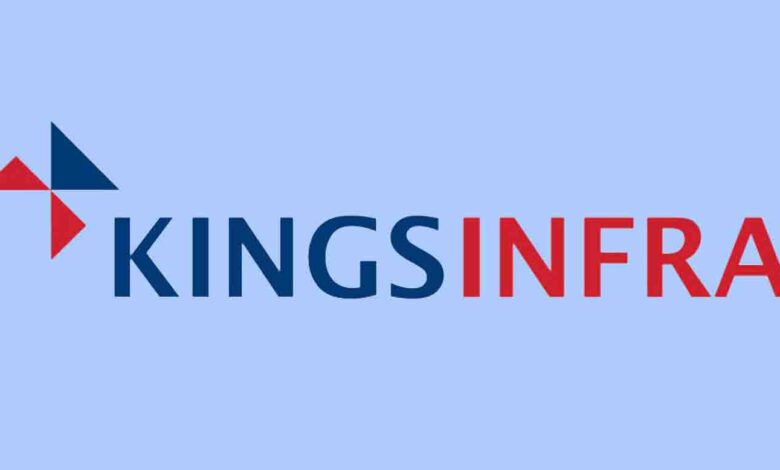India’s blue tech leap: Blockchain and the future of seafood exports

GUEST COLUMN
 Shaji Baby John
Shaji Baby John
Aquaculture, the world’s fastest-growing food production sector, is at a pivotal juncture. With global seafood demand expected to double by 2050, the industry must evolve rapidly to meet consumer expectations around food safety, traceability and environmental sustainability. As someone deeply involved in India’s aquaculture and seafood export sectors, I believe blockchain technology offers a transformational opportunity that we must seize. Blockchain is best understood as a digital ledger that records transactions in a transparent, secure and tamper-proof manner. Unlike traditional databases controlled by a single authority, blockchain is decentralised- every participant in the system can access the same data. Once recorded, entries cannot be altered—offering unprecedented trust and integrity in supply chains.
The seafood industry is notoriously complex. A shrimp harvested in Andhra Pradesh may pass through local aggregators, processing units, exporters, importers and distributors before reaching a restaurant plate in Tokyo, Dubai, or New York. At each stage, vital information about its origin, handling and quality is often lost or manually recorded, creating scope for mislabeling or non-compliance. Blockchain changes that. With every transaction and movement logged digitally, the entire lifecycle of the product becomes visible to all stakeholders. For instance, a QR code on a seafood pack can provide consumers access to its full journey—date of harvest, feed history, water quality parameters, transport conditions, and certification records. This level of transparency fosters trust and strengthens brand integrity. As Sunny Verghese, CEO of Olam International and Chair of the World Business Council for Sustainable Development, said, “When you can trace a shrimp from a farm in India to a plate in Paris, you’re not just improving transparency, you’re building a global trust system.”
In an era of rising food safety standards, especially in export markets, blockchain can serve as a robust compliance tool. Environmental conditions such as salinity, dissolved oxygen levels and antibiotic usage can be recorded in real-time and stored immutably on the blockchain. This enables regulatory agencies and certifiers to audit farms without manual paperwork, improving the speed and reliability of inspections. If any contamination or health issue arises, blockchain enables rapid trace-back to the source, allowing authorities to isolate the affected batch with surgical precision.
Sustainability certifications are critical for accessing high-value global markets. However, the credibility of such labels is often questioned due to fraud or poor data tracking. Blockchain can link every certification—be it organic, ASC (Aquaculture Stewardship Council), or BAP (Best Aquaculture Practices)—to verifiable records on farm operations, inputs, labour conditions and more. This makes it virtually impossible to falsify data or double-count products, giving consumers and buyers genuine assurance. As professor David Little of the University of Stirling observes,“Blockchain can fundamentally change how aquaculture systems report and assure quality, offering traceability that was previously unimaginable.”
Beyond traceability, blockchain can streamline the business side of aquaculture. Smart contracts—self-executing agreements on the blockchain—can automate payments once delivery conditions are met. Export documentation, insurance claims, and inventory management can be digitised, reducing delays and administrative costs. For farmers, this means faster payments, reduced paperwork, and better integration into global supply chains. When paired with digital finance tools, blockchain can also enable easier access to credit based on verifiable production data.
Of course, blockchain adoption isn’t without its challenges. Poor data inputs can undermine the system. Many small and medium-scale farmers still lack the digital literacy or infrastructure to contribute effectively. Mobile connectivity, sensors and affordable digital tools are essential to bridge this gap. Furthermore, standardised protocols must be developed across certification agencies, government regulators and exporters to ensure interoperability and trust.
Globally, countries are moving fast. In Norway, salmon producers use IBM’s Food Trust blockchain to record every step of their production and export process. In Vietnam and China, blockchain is already being used in tilapia and shrimp farms to meet EU traceability mandates. In India, MPEDA’s blockchain pilots in Andhra Pradesh and Tamil Nadu have shown promise. Exporters have reported increased buyer confidence and better prices. The time is ripe to build on this momentum. With our vast coastline, skilled workforce and strong technology base, India can lead the blockchain-powered aquaculture revolution.
At Kings Infra, we are committed to leading this transformation. Our wholly owned subsidiary is actively integrating blockchain into its aquaculture operations. By combining sustainable farming practices with cutting-edge digital technologies, KMEPL aims to set new benchmarks in traceable, export-ready seafood.
Through our retail verticals, we are bringing high-quality, blockchain-traceable seafood directly to consumers—while ensuring full transparency in cold chain, processing, and origin. We are also in the process of establishing a proposed global trading arm based in the UAE which will leverage this digital backbone to manage smart aquaculture operations, facilitate international partnerships and position India as a trusted source in premium seafood markets. Blockchain isn’t just a digital solution—it’s a trust solution. It empowers farmers, protects consumers, assures regulators and elevates Indian seafood to global premium standards. As someone who has watched this industry grow through generations, I see blockchain not as a disruption, but as an evolution—a tool to secure a more responsible, resilient and respected future for aquaculture.
(The author is chairman and managing director of Kings Infra Ventures Limited; views are personal)






